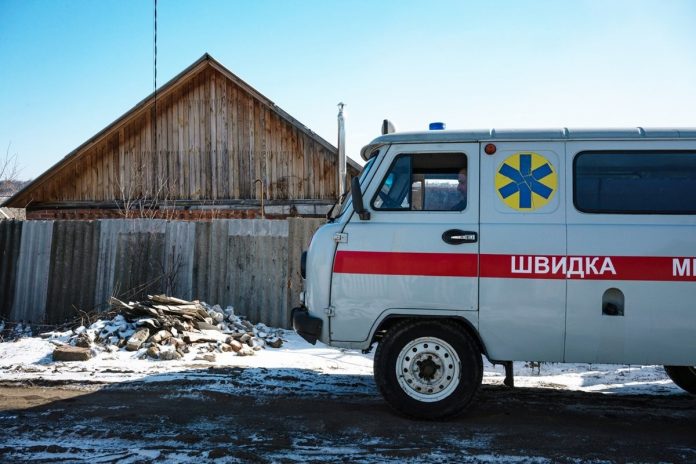KYIV, UKRAINE – At the six-month mark of the war in Ukraine, the country’s badly affected but still-resilient health system is taking stock of lessons learned in providing life-saving care with the support of WHO and partners as it prepares for a challenging winter ahead.
“Six months of war have had a devastating impact on the health and lives of Ukraine’s people, but despite many challenges the health system has managed to survive and deliver care where and when it is needed most,” said Dr Tedros Adhanom Ghebreyesus, WHO Director-General. “Though shaken, the health system has not collapsed. WHO continues to support the ministry of health of Ukraine to restore disrupted services, displaced health workers and destroyed infrastructure, which is essential not only for the health of Ukraine’s people, but for the country’s resilience and recovery. But no system can deliver optimum health to its people under the stress of war, which is why we continue to call on the Russian Federation to end this war.”
WHO has helped deliver more than 1300 metric tonnes of critical medical supplies in coordination with the ministry of health and partners, with more on the way. These include power generators, ambulances and oxygen supplies for medical facilities; supplies for trauma and emergency surgeries; and medicines to help treat noncommunicable diseases (NCDs).
However, attacks on health continue unabated, with 473 WHO-verified attacks recorded this past half-year, resulting in at least 98 deaths and 134 injuries.
“I’ve said this before and I’ll say it again and again: attacks on health care are unconscionable,” stressed Dr Hans Henri P. Kluge, WHO Regional Director for Europe. “Not only are these a violation of international humanitarian law, but they also kill and maim civilians and health-care providers, and severely hinder or prevent the delivery of, and access to, health care to those who need it the most. Amid the horror of war, we continue to witness the heroic efforts of health providers – including the many I’ve been privileged to meet in person myself – who are such a credit to their profession despite their own personal suffering.”
So far this year, WHO has helped train more than 9,000 healthcare workers on a range of issues including trauma surgery, mass casualties, chemical exposure, epidemiology and laboratory diagnostics. Mental health is another key focus. Stress management training is being provided to healthcare workers and the general population on how to safeguard mental health given the sharp rise in war-related psychological distress.
“WHO is stepping up its efforts with the ministry of health to ensure that the health workforce is prepared with the necessary skills to respond to mounting needs as winter approaches,” said Dr Jarno Habicht, WHO Representative in Ukraine. “We’re already seeing severe challenges and shortages in many areas, with rising inequalities in access to health and other essentials, impacting, as always, the most vulnerable – women, children and the elderly. Even as we look to a time when peace is restored, we must focus on the here and now – the next six months could test Ukraine’s health system as never before.”
Highlights of WHO’s support to Ukraine, February–August 2022:
- Working with over 150 government, United Nations and civil society partners through the Ukraine Health Cluster, a humanitarian coordination mechanism.
- Over 1300 metric tonnes of medical supplies delivered.
- Supporting the coordination of more than 80 Emergency Medical Teams across Ukraine, Poland and the Republic of Moldova, providing medical consultations, trauma and emergency surgery, and rehabilitation supplies, and supporting medical evacuations.
- Supporting the Ministry of Health of Ukraine to establish three health hubs in western Ukraine, for emergency medical services and medical evacuations, ensuring safe passage of patients from eastern to western Ukraine – including those with cancer – for treatment outside Ukraine.
- Focusing on mental health needs of the health workforce and civilian population. More than 12 000 psychosocial health consultations have been held since the start of the war.
- Training more than 9000 health-care workers on a range of issues, including trauma surgery, mass casualties, chemical exposure, epidemiology and laboratory diagnostics.
- Helping distribute medicines for NCDs in hard-to-reach areas with a focus on the most vulnerable. NCDs were the leading cause of illness and death in Ukraine even before the war.
- Supporting the continuation of COVID-19 vaccination and other immunization programmes, all the more critical as winter approaches with an expected rise in respiratory infections.
- Strengthening emergency health information and surveillance systems to better enable evidence-based health decision-making, including weekly situation reports, and updates on surveillance, attacks on health and service delivery.






